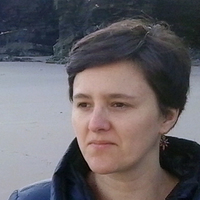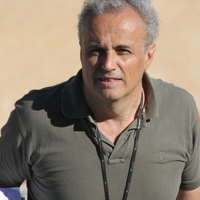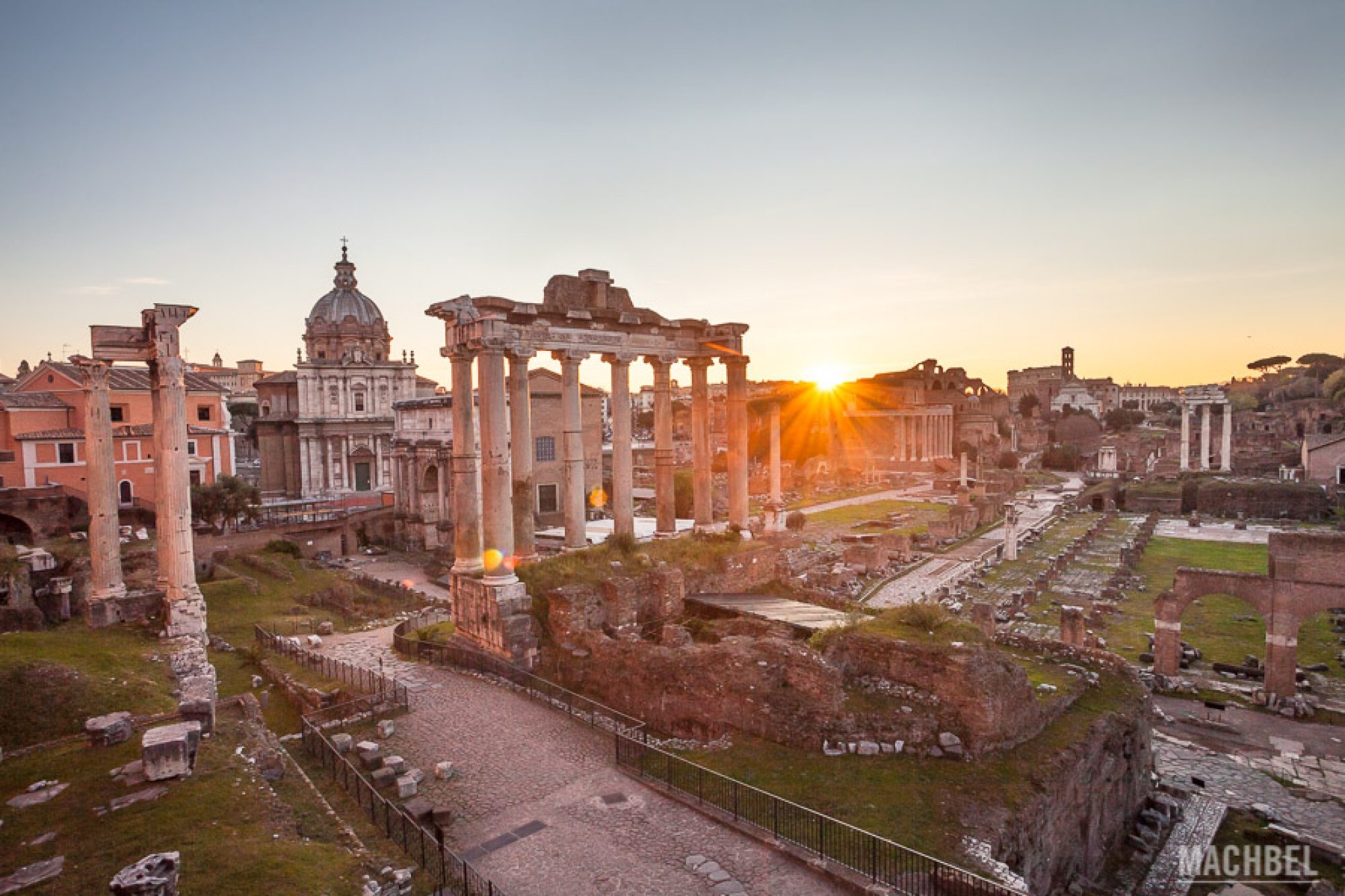
Assistant Professor Doctor (and accredited Contracted Doctor) in the Department of Prehistory, Ancient History and Archeology of the Complutense University of Madrid. She has a degree (1999) and a PhD (2005) in History from the Complutense University of Madrid, where she was a predoctoral fellow (FPU). She has also been a MEC / Fulbright postdoctoral fellow at the University of California, Berkeley (2006-2008) and a postdoctoral fellow at the “Julio Caro Baroja” Historiography Institute of the Carlos III University of Madrid (2009-2011). Since 2011 she is co-director of the UCM Research Group “Roman Cities”. His research topics are: intellectual and cultural history of Rome, Roman memory and historiography, education, orality and writing in Rome.
Main publications:
- Rodríguez Mayorgas, A. (2016): “History and memory in Roman thinking of the past: Historia and memoria in Republican literature”, Quaderni di Storia 83, pp. 51-76.
- Rodríguez Mayorgas, A. (2011): “The Annales Maximi: Writing, memory and religious performance in the Roman Republic”. En Sacred Words: Orality, Literacy and Religion. Orality, literacy and religion in the Ancient World, vol 8, A.P.M.H. Lardinois, J.H. Blok y M.G.M. van der Poel, (eds.), Brill, Amsterdam, pp. 235-254.
- Rodríguez Mayorgas, A. (2010): Arqueología de la palabra. Oralidad y la escritura en el mundo antiguo, Barcelona, Bellaterra, 303 pp.
- Rodríguez Mayorgas, A. (2010): “Romulus, Aeneas, and the Cultural Memory of the Roman Republic”, Athenaeum 98 (1), 2010, pp. 89-109.
- Rodríguez Mayorgas, A. (2007): La memoria de Roma. Oralidad, escritura e historia en la República romana, Oxford, BAR international series 1641, 212 pp.
- Antonio Duplá Ansuategui (University of País Vasco / Euskal Herriko Unibertsitatea)
- Bernat Montoya (University of Alicante)

Contracted Professor Doctor (accredited as holder) in ancient history at the Pablo de Olavide University. PhD in History from the University of Neuchâtel, Switzerland (2005). Humboldt Fellow at the Technische Universität Dresden, Germany (2015-2017).
It has been the IP of two research projects of the National R & D Plan, one of them active. It is part of the international research group Subaltern groups and popular practices na Antiguidade (Universidade de São Paulo).
She is the coordinator of the Network of Excellence Libera res publica (HAR2017-90703-REDT).
His lines of research are: 1. Political history and political culture of the late Roman Republic; 2. Roman economy. 3. Rhetoric in Rome.
Main publications:
- Rosillo López, C. (2017): Public Opinion in the Late Roman Republic, Cambridge University Press.
- Rosillo López, C. (2010): La corruption à la fin de la République romaine (IIe-Ier av. JC): aspects politiques et financiers. Stuttgart: Franz Steiner Verlag, Historia Einzelschriften. ISBN: 978-3515091275.
- Rosillo-López, C. (2018): “Political participation and the identification of politicians in the Late Roman Republic”, C. Steel, H. van der Blom, C. Gray, eds., Institutions and Ideology in Republican Rome: speech, audience and decision, Cambridge University Press, p. 69-87.
- Rosillo López, C. (2017): “The role and influence of the audience (corona) in trials in the Late Roman Republic”, Athenaeum 105, 106-119.
- Rosillo López, C. (2016): “The Workings of Public Opinion in the Late Roman Republic: the case of study of corruption”, Klio 98, 1- 25.

Degree in Geography and History (Philosophy and Letters) by the Autonomous University of Madrid with two specialties, Prehistory and Archeology (1992) and Ancient and Medieval History (1993), and Doctor in Ancient History by the same university (1997). Since 2010 he is a Full Professor of Ancient History at the Autonomous University of Madrid.
His main line of research is the study of the populations of the Iberian Peninsula during the Iron Age and under Roman rule. In particular he has dealt with the peoples of the Meseta (vetones, vacceos, carpetanos, celtíberos) and the West (lusitanos), taking an interest in socio-economic, ideological and political-territorial dynamics, as well as the processes of interaction with Rome and its integration provincial. Fruit of this dedication are more than 100 publications between monographs (highlighting Vetons: history and archeology of a pre-Roman people, 2000), chapters of books, articles in scientific journals and contributions in national and international congresses. A synthesis on the pre-Roman settlement is that offered in the Protohistory and Antiquity volume of the Iberian Peninsula. The pre-Roman Iberia and the Romanidad (2009), of which he is coordinator, under the statement “Of the peoples Pre-Romans: cultures, territories and identities. “
Main publications:
- Sánchez Moreno, E. (2011): “De la resistencia a la negociación: acerca de las actitudes y capacidades de las comunidades hispanas frente al imperialismo romano”, en García Riaza, E. (ed.): De fronteras a provincias. Interacción e integración en Occidente (ss.III-I a.C.). (Edicions Universitat de les Illes Balears). Palma de Mallorca, pp.97-103.
- Sánchez Moreno, E. y García Riaza, E. (2012): “La interacción púnica en Iberia como precedente de la expansión romana: el caso de Lusitania”. En Cocco, M.B., Gavini, A. & Ibba, A. (eds.): L’Africa romana. Trasformazione dei paesaggi del potere nell’Africa settentrionale fino alla fine del mondo antico. (Atti del XIX Convegno di Studio; Sassari, 16-19 dicembre 2010). (Carocci Editore). Roma, vol. II, pp.1249-1259.
- Sáncehz Moreno, E. (2015-2016): “Revisitando un topos: algunas notas sobre el latrocinium y el imperium de Roma”, Isimu. Revista sobre Oriente Próximo y Egipto en la Antigüedad, 18-19 (Ediciones UAM). Madrid, pp.349-359.
- Sánchez Moreno, E. y García Riaza, E. (2016): “Entre la paz y la guerra: amigos, enemigos y aliados en el Mediterráneo helenístico-romano. VI Coloquio Internacional Occidens: Madrid, Universidad Autónoma, Facultad de Filosofía y Letras, 12-13 noviembre 2015”, Bollettino di Studi Latini, 46, fasc.I (Cronache), pp.323-326.
- Sánchez Moreno, E. (2017a): “Las guerras celtibérico-lusitanas (114-93 a.C.) y su dimensión geopolítica”, en Principal Ponce, J., Ñaco del Hoyo, T., Durán, M. y Mestres, I. (eds.): 3 Roma en la Península Ibérica presertoriana. Escenarios de implantación militar provincial. (Col.lecció Instrumenta, 56. Publicacions i Edicions de la Universitat de Barcelona). Barcelona, pp.59-77.
- Elena Torregaray Pagola (University of País Vasco / Euskal Herriko Unibertsitatea)
- Enrique García Riaza (University of Illes Balears)
- Estela García Fernández (University Complutense of Madrid)
Fernando Wulff Alonso is Professor of Ancient History at the University of Málaga, Spain, where he has been a professor since 1982, after being one of Granada’s since 1978.
His work focuses on 1. Roman Republic in Italy and modern historiography in this regard, 2. Impact of Rome on Hispanic societies, 3. The use of antiquity and history in the construction of nationalisms; nationalist models and construction of historiographical models, 4. Mythology-epic and gender, 5. Incidence of Greco-Roman mythology in the Mahabharata.
5 Most relevant publications on 1:
1. (1981), “Apiano, la colonización romana y los planes de Tiberio Graco”, Latomus, 485-504; 731-750.
2. (1991), Romanos e Itálicos en la Baja República. Estudios sobre sus relaciones entre la II Guerra Púnica y la Guerra Social (202-91 a.C.), Bruselas, Ed. Latomus.
3. (2003), Roma e Italia de la Guerra Social a la retirada de Sila (90-89 a.C.), Bruselas, Ed. Latomus.
4. (2010), “Unidad de Italia, unidad de la Galia, unidad de Hispania. Notas historiográficas”, Athenaeum 98.1, 121-134.
5. (2015), “Italians in Badian’s Foreign Clientelae”, F. Pina Polo, M. Jehne (eds.), Foreign Clientelae in the Roman Empire: A Reconsideration, Historia Einzelschriften, Franz Steiner Verlag, Stuttgart, 2015, 73-92.

Professor of Ancient History at the University of Zaragoza, where he received his doctorate in 1988 (Extraordinary Doctorate Award).
Postdoctoral fellow at the Seminar für Alte Geschichte in Heidelberg (1993-94); Visiting Scholar at Wolfson College in Oxford in 2005; member of the Princeton Institute for Advanced Study in 2012 and 2014; Research Visiting Scholar of Merton College in Oxford in 2017.
Co-organizer and co-editor of the International Colloquiums of Ancient History University of Zaragoza since 2001 (biennial periodicity).
Director of the magazine Archivo Español de Arqueología between 2009 and 2015.
Member of the Scientific Committee of the Impact of Empire series (ed. Brill).
Member of the Scientific Committee of the Klio magazine. Zeitschrift für Alte Geschichte.
Main publications:
- Las contiones civiles y militares en Roma, Zaragoza 1989
- Contra arma verbis. Der Redner vor dem Volk in der späten römischen Republik, Heidelberger Althistorische Beiträge und Epigraphische Studien 22, Franz Steiner Verlag, Stuttgart 1996
- Marco Tulio Cicerón, ed. Ariel, Barcelona 2005 (2ª edición 2016), traducido al alemán con el título Rom, das bin ich. Marcus Tullius Cicero ein Leben, Klett-Cotta Verlag, Stuttgart 2010 (2ª edición 2011)
- The consul at Rome: The civil functions of the consuls in the Roman Republic, Cambridge University Press, Cambridge 2011
- (con M. Jehne, eds.) Foreign clientelae in the Roman Empire: A Reconsideration, Historia Einzelschriften, Franz Steiner Verlag, Stuttgart 2015

Gustavo Vivas García (Santa Cruz de Tenerife, 1972-) has been accredited since November 2016 as Assistant Professor Doctor. From that same year he teaches part-time classes (modality of venia docendi) in Ancient History at the University of La Laguna. He is the author of Octavia against Cleopatra. The role of women in the political propaganda of the Triumvirate (44-30 a.C.) (Madrid, Liceus, 2013) and Ronald Syme. The road to “La Revolución Romana” (1928-1939) (Barcelona, Universitat de Barcelona, 2016), as well as various articles about his specialty in national and international journals.
Among the most recent are:
. “Géza Alföldy and Ronald Syme: a case study”, Studia Europaea Gnesnensia 16, 2017, 529-551.ISSN 2082-5951. DOI 10.14746/seg.2017.16.25
. “El Ottaviano Capoparte de Mario Attilio Levi y su influencia en The Roman Revolution de Ronald Syme”, Gerión 35/1, 277-295. http://dx.doi.org/10.5209/GERI.56966
Manuel Salinas de Frías is a professor of Ancient History at the University of Salamanca.
His research activity has focused mainly on the study of the History of Rome, with special reference to the Hispanic provinces and the development of Roman imperialism during the Republican period. He is the author, among other books, of: Conquest and Romanization of Celtiberia, Salamanca 1986; The government of the Hispanic provinces during the Roman Republic, Salamanca 1995; The vettones. Indigenismo and romanización in the West of the Plateau, Salamanca 2001; and The pre-Roman peoples of the Iberian Peninsula, Madrid 2006, as well as numerous articles and book chapters.
He has been co-organizer of the II International Round Table on Roman Lusitania (Salamanca 1993) and co-editor of the Acts of the same and also founding member of the “Merida Group (Economies, Societés et idéologies à la Lusitanie Romaine)”, directed by the University of Bordeaux III and sponsored by the National Museum of Roman Art (Mérida). He has also co-authored the Anthropomorphic Atlas of the Roman Lusitania (Mérida-Burdeos 2003), Director of the Department of Prehistory, Ancient History and Archeology of the University of Salamanca, and Director of the journal Studia Historica. Old history. He is a member of the Editorial Board of different scientific journals; among them Palaeohispanica of the University of Zaragoza, Cadmo of the University of Lisbon, and Links of History, of the UCLM. He is currently also a Principal Investigator of the Recognized Research Group of the USAL Hesperia on the Iberian Peninsula in Antiquity. Accumulates six recognized sexenios of investigation.

Bachelor and doctor in Geography and History from the Complutense University of Madrid. Full Professor (accredited professor) at the University of Santiago de Compostela. He has been visiting scholar at Wolfson College (Oxford) (2002-2003) and affiliate academic at University College London (2016). He is coordinator of the interuniversity master (USC-UVigo, with participation of the INCIPIT-CSIC) in “Archeology and Sciences of Antiquity”. Principal investigator of the project “Latinos Junianos: definition and epigraphic identification” (HAR2017-86523-P) for the period 2018-2020. He has directed three doctoral theses to date. His three main research topics are the social mobility of freedmen, ancient political thought (Cicero in particular) and Roman legal epigraphy.
Republican publications:
- “The Quinquatrus of June, Masyas and Libertas in the Late Roman Republic” Classical Quarterly 67 (2018) 1-17 doi:10.1017/S0009838818000289
- Historia de la Manumisión en Roma. De los orígenes a los Severos, Madrid, 2008 (Anejos de Gerión XI).
- Imperio legítimo. El pensamiento político romano en tiempos de Cicerón, Madrid, 2007, Antonio Machado.
- “How (not) to sell a son – Twelve Tables 4,2” Zeitschrift der Savigny-Stiftung für Rechtsgeschichte – römische Abteilung 123 (2006) 297-308.
- “Formaciones sociales de clase en la República tardía” Athenaeum 92,2 (2004) 509-518.

Titular Professor of Roman Law, Rey Juan Carlos University. Law degree from the Universidad Pontificia Comillas (ICAI-ICADE). Doctor in Law from the University of Córdoba. Extraordinary Award of Degree and Extraordinary Doctorate Award (University of Córdoba). His research focuses on private Roman law (legal business and successions) and the history of the Roman Republic (political struggles of the 1st century BC, republican crisis and advent of the Principality).
Most relevant publications in the historical field:
- Castán Pérez-Gómez, S. (2011): El matrimonio como estrategia en la carrera política durante el último tramo de la República. RIDROM. Revista Internacional de Derecho Romano (online), 7, octubre 2011, pp. 367-423.
- Castán Pérez-Gómez, S. (2013): Marco Agripa y Augusto. Poder, Imperium Maius y problema sucesorio en el contexto de las tensiones república-Principado. RIDROM. Revista Internacional de Derecho Romano (online), 10, abril 2013, pp. 196-290.
- Castán Pérez-Gómez, S. (2013): Una aproximación a la democracia romana a través del sufragio activo y pasivo. Rivista di Diritto Romano (online), 13, 2013, pp. 1-33.
- Castán Pérez-Gómez, S. (2015): Endogamia matrimonial, de clase y política en Roma: un modelo antiguo de exclusión social. Studia et Documenta Historiae et Iuris, 81, 2015, pp. 121-153.
- Castán Pérez-Gómez, S. (2016): Cicerón entre el fragor de las luchas políticas: el consulado del 63 a. C. y el debate en torno a la legalidad del senatusconsultum ultimum. RIDROM. Revista Internacional de Derecho Romano (online), 16, abril 2016, pp. 305-365.
https://urjc.academia.edu/SantiagoCast%C3%A1nP%C3%A9rezG%C3%B3mez

Toni Ñaco del Hoyo, PhD from Universitat Autònoma de Barcelona (1996). ICREA Research Professor at Universitat de Girona from 2015, and formerly at UAB (from 2009), where he had also been ‘Ramón y Cajal’ Research Fellow, from 2004. He was postdoctoral researcher (Spanish and Catalan funding) at the University of Oxford between 1998 and 2002 (3 years). In 2007 he was granted funding by H.F. Guggenheim Foundation (NY, USA). He has acted as PI of three research grants from Spanish government funding, two grants from Catalan International Institute for Peace, and several grants to organize scientific events (such as the ICREA Award 2012). He has supervised, jointly and individually, four already examined PhD theses, and he is currently supervising three PhDs at the moment. Since 1998 he is a Member of the Common Room, Wolfson College Oxford, and since 2012 he is a Visiting Scholar at the Classics Faculty, Oxford University. Also, he was Fulbright Visiting Scholar at UC Berkeley (2004) and Tytus Visiting Scholar (summer residence) at University of Cincinnati (2014).
Main publications:
- Ñaco del Hoyo, T., Principal, J., ‘Q. Sertorius, a ‘warlord’ in Hispania?’ in: Ñaco del Hoyo, T., López Sánchez, F. (eds.), War, Warlords and Interstate Relations in the Ancient Mediterranean (Leiden-Boston 2018), 380-414.
- Ñaco del Hoyo, T., ‘Roman and Pontic intelligence strategies. Politics and war in the time of Mithridates VI’, War in History, 21.4 (2014), 401-423.
- Ñaco del Hoyo, T., ‘Le praefectus praesidii sous la République. Quelques cas d’étude’, REA, 111, 1, 2009, 179-195.
- Vervaet, F.J., Ñaco del Hoyo, T., ‘War in Outerspace: Nature and Impact of the Roman War Effort in Pre-Provincial Spain, 218/217 – 197 BCE’, in L. de Blois, E. Lo Cascio (eds.), The impact of the Roman army (200 BC – AD 476): economic, social, political, religious and cultural aspects, (Brill ed., Leiden & Boston 2007), 21-46.
- Ñaco del Hoyo, T., Vectigal Incertum. Economía de guerra y fiscalidad republicana en el Occidente mediterráneo: su impacto en el territorio (218-133 a.C.), B.A.R Int. Ser.1158 (Oxford 2003).
- Research and teaching fellow at the University of Geneva since 2019.
- Current research project: Carthaginian Imperialism and Local Responses: Iberia as a Case Study (financed by the Swiss National Science Foundation).
Recent Publications:
Silva Reneses, L. Deducti, traducti. Les déplacements de communautés organisés par Rome en Italie et dans la péninsule ibérique (268-13 av. n. è.), Stuttgart, 2002.

Rubén Olmo-López (University of Oviedo)
Assistant Professor Doctor (accredited as Associate Professor) in Ancient History in the Department of History at the University of Oviedo. PhD in Ancient History, with European mention and Extraordinary Doctorate Award, from the Complutense University of Madrid (2016). He was FPU predoctoral fellow at UCM (2011-2015), borsista post-doc at the Istituto Italiano per gli Studi Storici di Napoli (2016-2017) and postdoctoral fellow at the University of Santiago de Compostela between 2017 y 2022 (postdocs Xunta de Galicia A and B, and Juan de la Cierva Incorporación-MICINN). He also was allievo borsista in the X Collegio di Diritto Romano (Cedant) at the IUSS-Pavia (2012). He has carried out several research stays in european academic centres, including: Università di Roma 1 La Sapienza (2013), Centre ANHIMA-EPHE Paris (2014), Université Paris Nanterre (2017-2018) and Universität Hamburg (2018-2019).
His main research topics are: 1) the official duties and social behaviour of Roman provincial governors; 2) Roman administration and privileged cities in Africa; 3) the role of the comitia in the foreign policy of the Republic.
Main publications:
Olmo-López, R. (2023) “La relación de las ciuitates liberae africanas con los (pro)magistrados romanos en época republicana: el caso de Útica”, en S. Aounallah, F. Hurlet, P. Ruggeri (eds.), L’Africa antica dall’età repubblicana ai Giulio-Claudii (L’Africa Romana XXII), Faenza (in press).
Olmo-López, R. (2023) “Las civitates liberae et foederatae en el Occidente mediterráneo: de la alianza formal a la dependencia informal (ss. III a.C. – I d.C.)”, en E. García Fernández, E. Melchor, S. Sisani (eds.), Le strutture locali dell’Occidente romano: stato dell’arte e prospettive di ricerca, Roma, pp. 259-287.
Olmo López, R. (2021) “Lepcis Magna and the Roman proconsuls in the Julio-Claudian period: Cooperation and dependence”, Historia. Zeitschrift für Alte Geschichte 70/3, pp. 351-374.
Olmo López, R. (2018) El centro en la periferia. Las competencias de los gobernadores provinciales romanos en Hispania durante el Principado, Geschichte und Kultur der Iberischen Welt Bd. 14, Zürich-Berlin: Lit Verlag. (the study also deals with republican precedents).
Olmo López, R. (2018) “El gobernador provincial y las comunidades latinas: el caso de Nemausus en Estrabón”, Gerión 36/2, pp. 537-553.
Olmo-López, R. (2015) “Nuevas perspectivas en torno al edicto provincial en época republicana”, Latomus 74/4, pp. 939-967.
